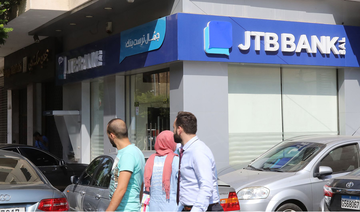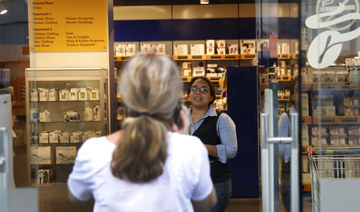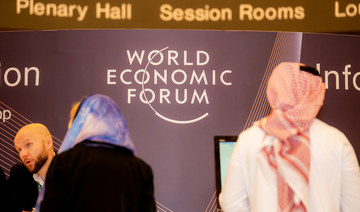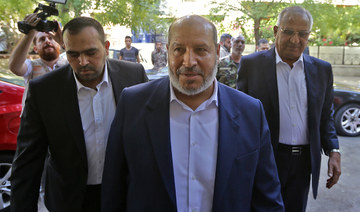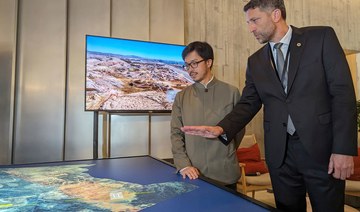BEIRUT: At least $250 million in UN humanitarian aid intended for refugees and poor communities in Lebanon has been lost to banks selling the local currency at highly unfavorable rates, a Thomson Reuters Foundation investigation has found.
The losses — described in an internal United Nations document as “staggering” and confirmed by multiple sources — come as Lebanon grapples with its worst ever economic crisis, with more than half the population living under the poverty line, according to the World Bank.
They stem from a plunge in the value of the Lebanese pound since the economy began to collapse in late 2019, sending prices soaring and forcing many Lebanese into poverty.
The unfavorable exchange rates offered by Lebanese banks have hit Syrian and Palestinian refugees and poor Lebanese particularly hard as they are able to buy far less with the cash handouts they receive from the UN
Pre-crisis, refugees and poor Lebanese received a monthly payout of $27, equal to about 40,500 Lebanese pounds, from the World Food Programme (WFP).
That has now risen to about 100,000 Lebanese pounds per person, but its real value is a fraction of what it was before — about $7 at the current rate.
“The buying power used to be very good, we could get an acceptable food basket,” said Abu Ahmad Saybaa, a Syrian refugee who runs a Facebook page that highlights the challenges faced by refugees in Lebanon.
“But now (the handouts) can’t get us more than a gallon of cooking oil. There’s a huge difference in purchasing power,” said the father of five, who has lived in a refugee camp in Lebanon’s rugged northeast since 2014.
“It’s weighing on all of our health — mental and physical.”
An aid official and two diplomats from donor countries confirmed that between a third and half of all direct UN cash aid in Lebanon had been swallowed up by banks since the outset of the crisis in 2019. All spoke on condition of anonymity.
During 2020 and the first four months of 2021, banks exchanged dollars for UN agencies at rates on average 40 percent lower than the market rate, the aid official said.
Lebanon maintains an official exchange rate of about 1,500 pounds to the dollar, but since the crisis has only been able to apply that rate to a handful of essential goods.
All other imports have to be bought at much higher exchange rates, resulting in soaring prices.
Most of the losses came from a 2020 UN assistance program worth about $400 million that provides around 1 million Syrian refugees in Lebanon with monthly funds for food, education, transport, and winter weather-proofing of shelters.
Lebanon is home to over 1 million Syrian refugees, nine in 10 of whom live in extreme poverty, according to UN data.
The country received at least $1.5 billion in humanitarian aid in 2020.
An internal UN assessment in February estimated that up to half the program’s value was absorbed by Lebanese banks used by the UN to convert donated US dollars.
The document, seen by the Thomson Reuters Foundation, said that by July 2020 a “staggering 50 percent” of contributions were being lost through currency conversion.
The Association of Banks in Lebanon (ABL), which represents the country’s commercial banks, denied using aid to raise capital.
It said the UN could have distributed in dollars, or negotiated a better rate with Lebanon’s central bank.
A central bank spokesperson did not respond to a request for comment on the rates provided to humanitarian organizations
The $400 million UN program, known as LOUISE, receives funding from the United States, the European Commission, Germany, the United Kingdom, Canada, the Netherlands and France among others, according to its website.
It comprises the WFP, the UN refugee agency (UNHCR) and the UN Children’s Fund (UNICEF).
The Thomson Reuters Foundation compared the rates at which the banks converted US dollars in 2020 and 2021 with the concurrent market exchange rates to calculate the amount of aid lost.
The losses amounted to about $200 million in 2019 and 2020 and at least $40 million so far in 2021.
The figures are in line with the UN internal assessment and were independently verified by an aid official.
A UNICEF spokesperson said the agency was “very concerned that recipients receive the full value of cash transfers” and had recently renegotiated to obtain a rate close to the market rate.
It is also testing disbursement in dollars for some programs, the spokesperson said.
Banque Libano-Francaise (BLF), which was contracted by LOUISE agencies to give out aid, declined to comment on the unfavorable conversion rates, saying it was bound by a confidentiality agreement with them.
It also said the agencies could have distributed the money directly in dollars.
WFP funding of monthly cash assistance to 105,000 vulnerable Lebanese people, worth some $23 million last year, used the same unfavorable exchange rates, a WFP spokesperson said, meaning up to half of funds were lost to banks.
The WFP and UNHCR referred the Thomson Reuters Foundation to the UN humanitarian coordinator’s office, which declined to comment on the reasons for the massive losses.
A spokesperson for the UN agency for Palestinian refugees (UNRWA) said between a third and half of the aid it distributed since October 2020 – up to $7 million — was lost through currency conversion. The agency has repeatedly warned of funding shortfalls.
The documented losses from the LOUISE, WFP and UNRWA programs amount to at least $250 million since October 2019.
Following pressure by the UN agencies, the discrepancies between the average market exchange rate and the rate offered by the banks have shrunk, but not disappeared.
Confronted with a financial system keen on sucking in as many dollars as possible, donors and UN agencies have struggled to develop a cohesive approach that maintains the full value of aid.
In May, a top World Bank official said Lebanon had agreed to disburse the aid from a $246 million World Bank loan to poor Lebanese directly in dollars, but the payouts have been delayed.
Dollarization of aid, which was recommended in the February internal assessment and lobbied for by donor countries and independent analysts, would keep the full value of the donations for beneficiaries regardless of fluctuations in currency rates.
But Lebanese authorities have resisted efforts to dollarize aid inflows as they seek to maintain control over one of the few remaining sources of hard currency.
Meanwhile, donor nations have grown increasingly impatient and fearful of reputational damage tied to the millions in taxpayer money absorbed by banks.
“We’ve been more than ready to invest in helping people, but we need a credible counterpart that’s not going to pocket money that we are ultimately accountable for at home,” said one Western diplomat on condition of anonymity.
Jad Chaaban, a professor of economics at the American University of Beirut, said international organizations operating in Lebanon often walked a tight line between making compromises in a difficult political environment and holding to standards of accountability.
“In this case, it’s unacceptable and there must be much higher standards. We effectively see the same dynamics as contractors or crony businessmen siphoning off money that they received to build a school or infrastructure project,” Chaaban said.
“Right now, every cent counts for Lebanon.”
Lebanese banks swallow at least $250m in UN aid
https://arab.news/gduk8
Lebanese banks swallow at least $250m in UN aid
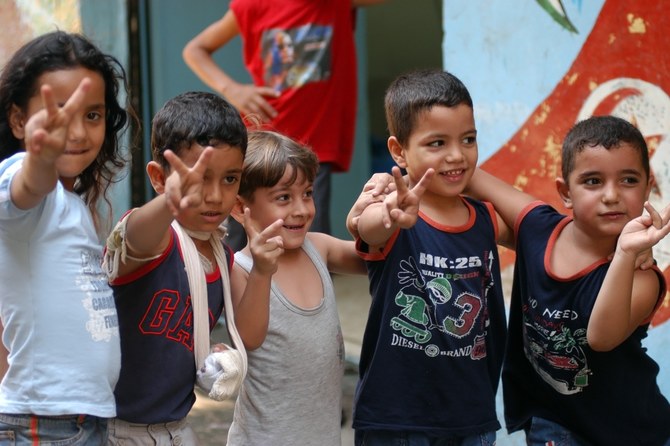
- Officials from donor countries confirmed that banks swallowed between a third and half of all direct U.N. cash aid in Lebanon
- An internal assessment in February estimated that up to half the UN assistance programme's value was absorbed by Lebanese banks
Saudi Arabia to host 28th World Investment Conference in Riyadh
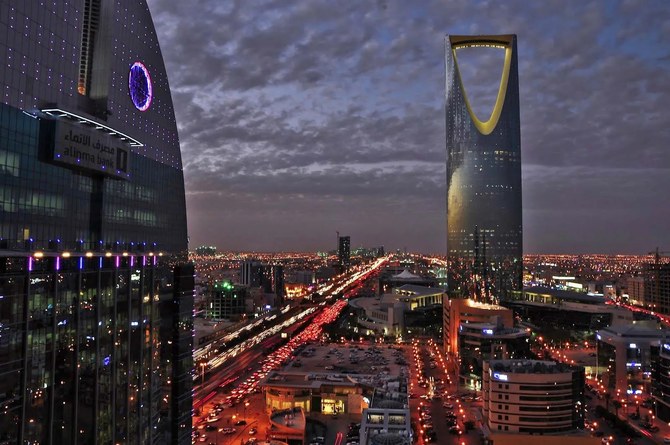
RIYADH: Saudi Arabia is on track to host the 28th World Association of Investment Promotion Agencies’ World Investment Conference from Nov. 25 to 27 in Riyadh.
The forum themed “Future-ready IPAs: Navigating digital disruption and sustainable growth,” will bring together leaders from investment promotion agencies, corporates, multilateral institutions, and other stakeholders to discuss global financial trends and opportunities, according to a statement.
The Kingdom’s selection as a host underscores its position as an international funding hub, according to Saudi Investment Minister Khalid Al-Falih.
“We are honored to be welcoming the global investment community to Saudi Arabia. Our strategic location at the crossroads of three continents, coupled with our world-class investment ecosystem and long-term political and economic stability, has seen the Kingdom develop into a global investment hub,” Al-Falih said.
“The World Investment Conference will serve as a platform to showcase our nation’s potential and forge partnerships that will shape the global investment landscape for years to come,” the minister added.
On WAIPA’s behalf, Executive Director and CEO Ismail Ersahin said: “WAIPA is honored that the 28th WAIPA World Investment Conference will be held in Riyadh, a city with a rich history and culture.”
Ersahin added: “With each edition, the WIC reaffirms its status as a guiding force for sustainable and inclusive development.”
He went on to stress how the conference is poised to be an impactful gathering aimed at the future readiness of IPAs.
Since 1995, the annual gathering has provided a forum for stakeholders to exchange insights and best practices and forge partnerships that drive economic development globally.
Saudi Green Building Forum set to obtain UNCCD’s permanent observer status
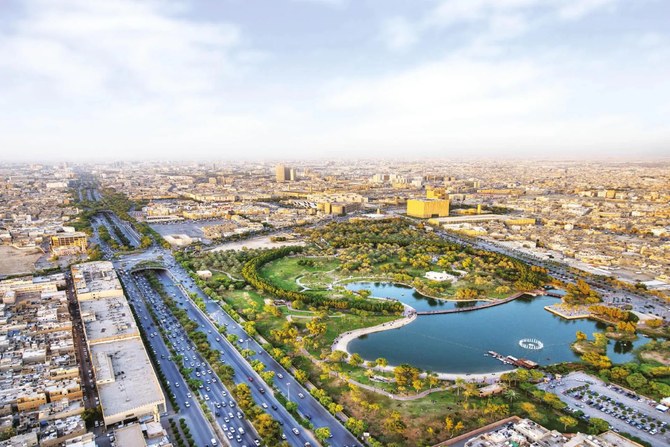
RIYADH: The Saudi Green Building Forum is set to obtain permanent observer status following the submission of a formal request to the UN Convention to Combat Desertification.
Pending a final decision during the 16th session of the Conference of the Parties to be held from Dec. 2-13 in Riyadh, this move underscores the forum’s efforts to enhance its role in sustainable development and combat desertification.
The forum, which has already been temporarily accredited, is involved in the proceedings based on the provisions of paragraph seven of article 22 of the convention and articles six and seven of the internal regulations of the COP, according to a press release.
This initiative is part of a broader strategy to integrate scientific and community-based approaches to environmental management.
Commenting on the development, Faisal Al-Fadl, secretary-general of the Saudi Green Building Forum, said: “We are pleased with the official notification from the UN Secretariat of the receipt of the required documents after a thorough review of the documents submitted for the accreditation of the forum as the first Saudi institution specialized in preparation for obtaining observer status for the Conference of the Parties to the UN Convention to Combat Desertification,” he stated.
“The efforts of local communities play a significant role in enhancing the sustainable development goals for people, plants, and prosperity through advocating for human experiences based on scientific rules and community health and well-being for healthy, fair, and resilient communities and cities, sufficient consumption and production, climate action in removing harmful carbon, and reducing the temperature to 1.5 degrees Celsius, addressing desertification, and managing natural resources and water,” he added.
The UN Secretariat confirmed the receipt of all necessary documents for the forum’s accreditation as an observer, encouraging further participation in the convention’s activities.
“After a thorough review of the documents submitted by your institution, we encourage you to continue participating in the implementation of the UN Convention to Combat Desertification and keep the secretariat informed of the activities,” the letter stated.
The Saudi Green Building Forum’s potential new status as a permanent observer at the UN Convention will enable it to contribute more effectively to global efforts against desertification, leveraging cooperation between developed and developing nations, particularly in sustainable land management and environmental restoration.
‘Two-state solution,’ investing in crisis resilience hold key to Mideast future, says Saudi minister
‘Two-state solution,’ investing in crisis resilience hold key to Mideast future, says Saudi minister
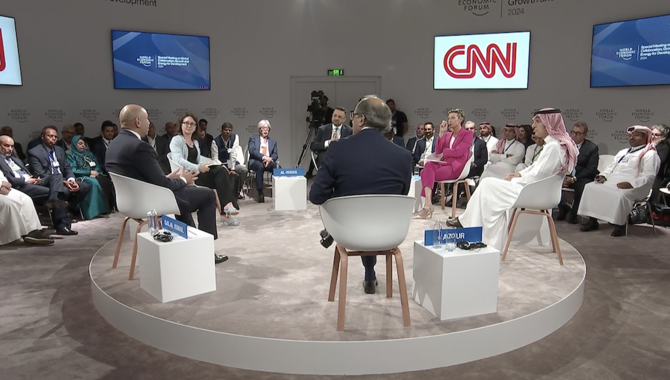
- Vision of regional development, prosperity ‘complicated by tensions,’ Adel Al-Jubeir tells WEF special meeting
LONDON: The key to getting the Middle East region back on track toward development and prosperity is ending the Gaza conflict, the Saudi minister of state for foreign affairs said on Sunday.
Adel Al-Jubeir, who was speaking at the World Economic Forum Special Meeting being held in Riyadh, said the Israel-Hamas conflict raging in the enclave only served to “undercut” any attempts to integrate the region and “unleash its potential.”
He added that, considering its young population, abundant natural resources and strategic geographical location, the Middle East had all the ingredients to be a successful region.
The goal of policymakers in Saudi Arabia and beyond was to ensure these elements benefitted everyone and better linked the Middle East region with the rest of the world, Al-Jubeir said.
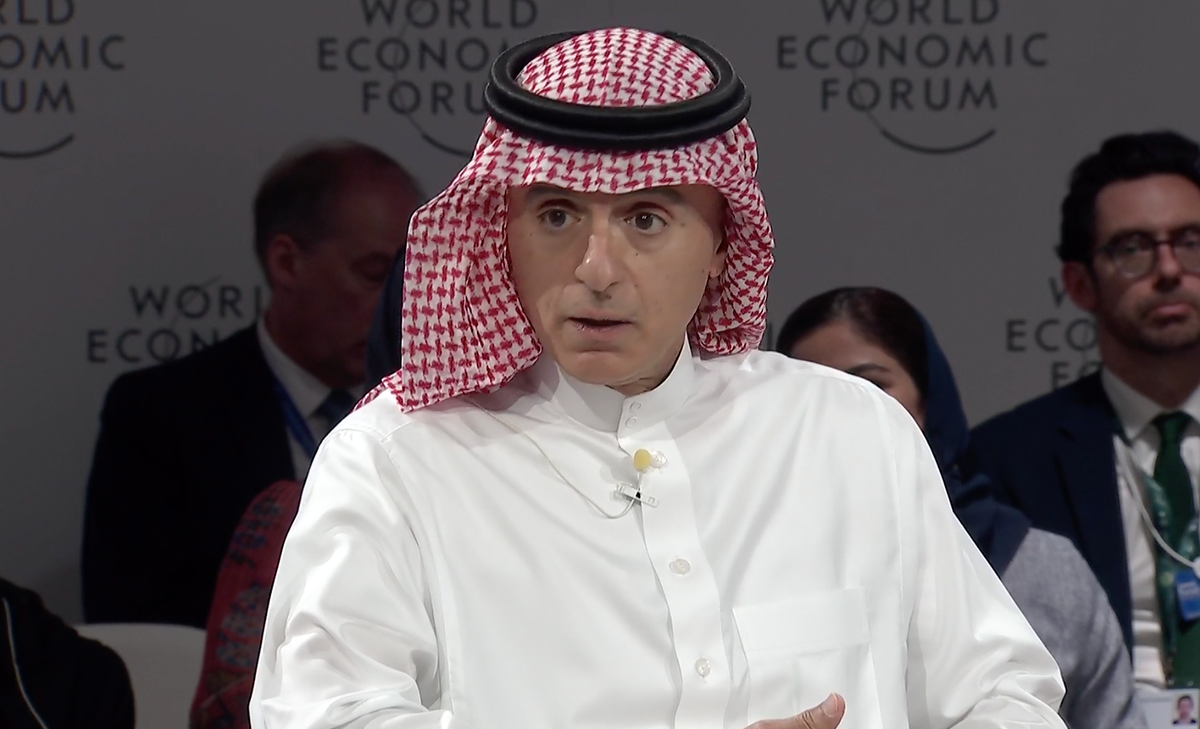
However, he said that this vision was “complicated by tensions” affecting the Middle East, and it was important to put an end to these in order to “focus on the things that matter” to developing its prosperity.
“(With the situation in Gaza), our number one priority is to stop the fighting,” he said. “Our second priority is to ensure enough humanitarian assistance goes into the Gaza Strip so that we avoid starvation, disease, and we take care of the people there,” he added.
“In the long term, we need to find a way to end this conflict (for good), and the only way we end it is by having a two-state solution, so we need to chart a clear, time-bound irreversible path to a Palestinian state.
“Saudi Arabia has said in terms of normalization (with Israel), this would be a part of that. The Arab world has had a position with regard to the Arab Peace Initiative, the US and the rest of the world supports this, so we need to make sure we stop the fighting, increase assistance and come up with a pathway to that Palestinian state,” he added.
When pressed by the panel moderator, CNN’s Becky Anderson, on whether a two-state solution would be possible with Benjamin Netanyahu and his right-wing government in charge in Israel, Al-Jubeir said it was in “everyone’s interest” to end the conflict.
“I’m not a mind reader or a psychiatrist; it’s not what I was educated in or my profession,” he said. “But what I can tell you is the interests of everybody in the region requires putting an end to this conflict, the potential that can be unleashed is tremendous, with good will, seriousness and foresight we should be able to get the ball over the goal line,” he added.
Mohamad Al-Ississ, Jordanian finance minister, also said the region had lurched from crisis to crisis over several decades, and told the WEF panel: “The one certain thing anybody can be certain of is that uncertainty is here to stay.”
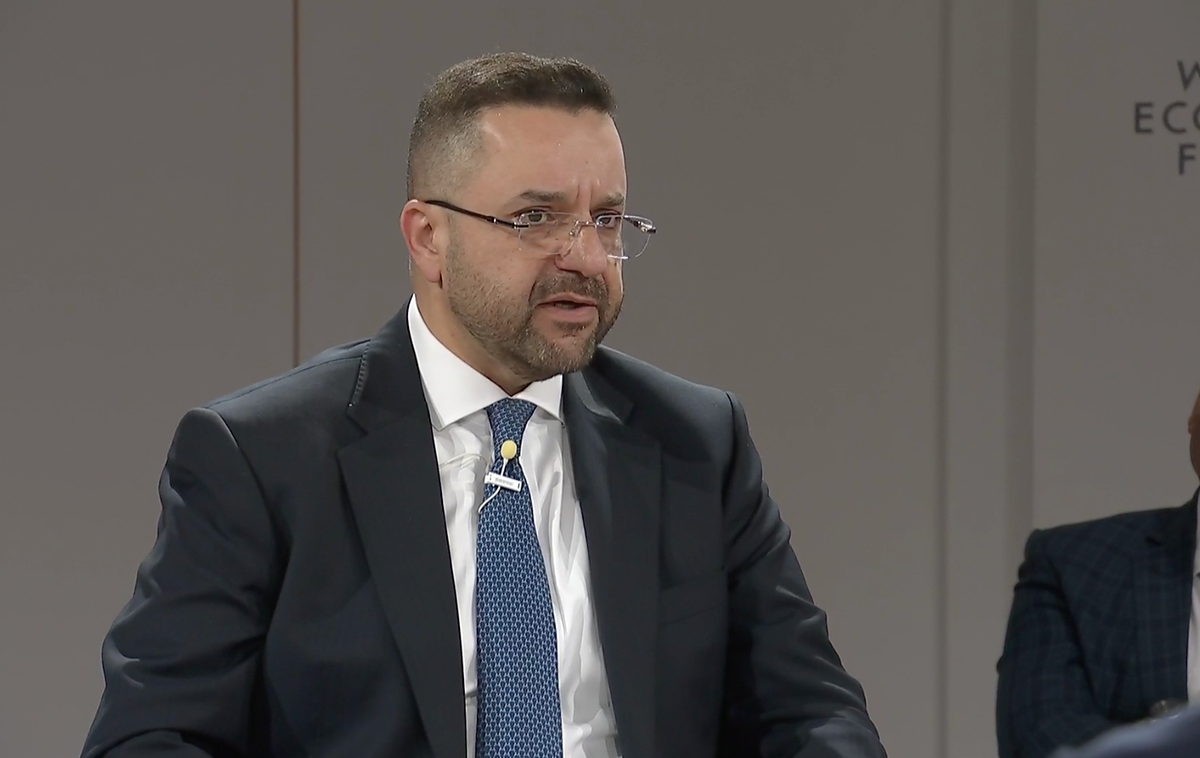
He said the role of policymakers in the Middle East should be investing and developing sectors that allowed the region’s economies to absorb and ride out the shock and impact that crises can have.
“The top priority is (determining) how to invest in enhancing your buffers, so that you can increase your resilience for when ‘black swan’ events, which have become the norm, unfold,” he said.
Ahmed Galal Ismail, CEO of UAE’s Majid Al-Futtaim Holding, agreed. He said that while peace and stability were “obviously indispensable to economic growth,” if the region just waited for it to happen, it could be “waiting for a long time.”
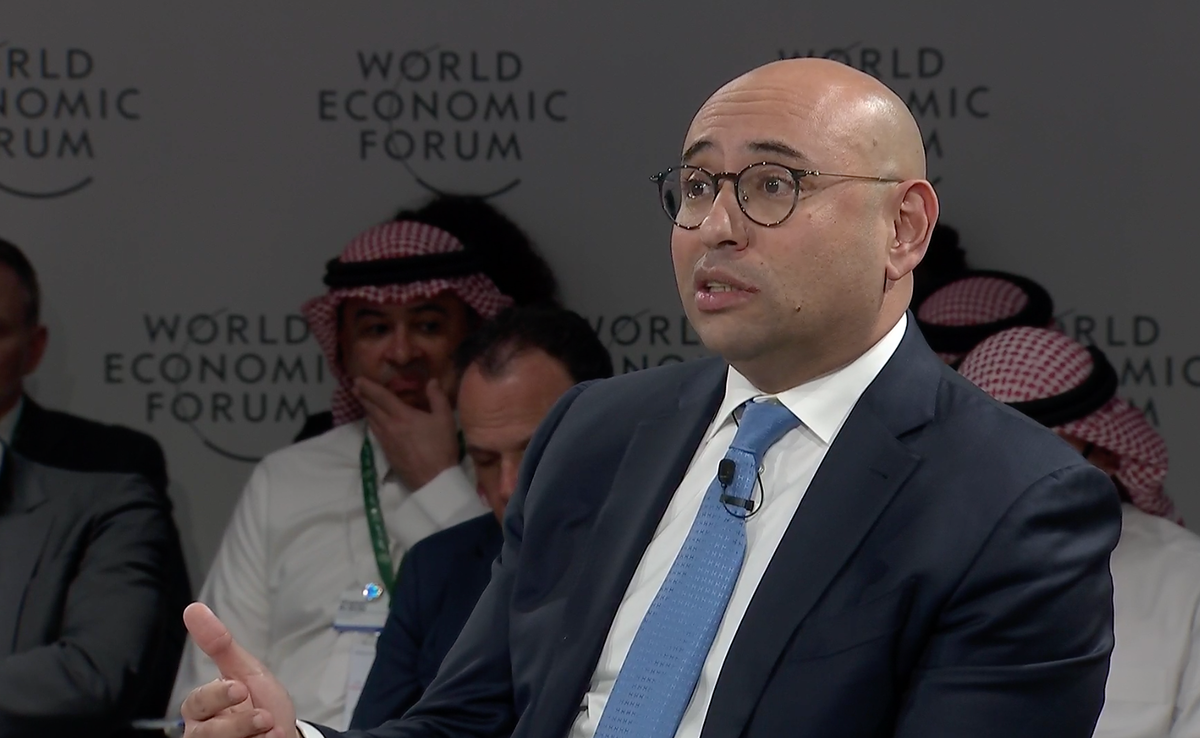
He cited an example of intra-Arab trading being at its highest-ever level, but added it was “anaemic” compared with other global blocs.
“We need to act. From a private sector perspective, we see opportunities independent from geopolitics and from the cruelty we see in parts of the region, so it is very important the actors in the sector are pragmatic, take the lead, and start what is needed to drive that economic integration.”
Closing Bell: Saudi benchmark index edged down to close at 12,381
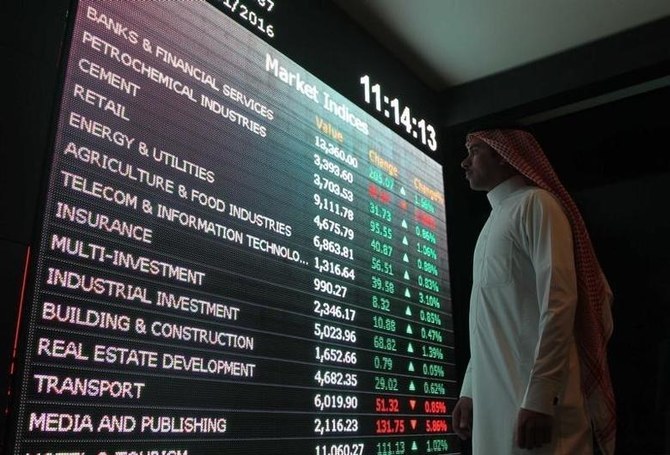
RIYADH: Saudi Arabia’s Tadawul All Share Index slipped on Sunday, losing 102.46 points, or 0.82 percent, to close at 12,381.95.
The total trading turnover of the benchmark index was SR3.64 billion ($972 million), as 29 of the stocks advanced while 201 retreated.
Nomu, the Kingdom’s parallel market, also dropped 414.9 points, or 1.55 percent, to close at 26,277.06. This comes as 11 of the stocks advanced while as many as 50 retreated.
Meanwhile, the MSCI Tadawul Index slipped 9.52 points, or 0.61 percent, to close at 1,553.88.
The best-performing stock of the day on the main index was Al-Baha Investment and Development Co. The company’s share price surged 7.69 percent.
Other top performers included Saudi Cable Co. as well as Fawaz Abdulaziz Alhokair Co.
The worst performer was ACWA Power Co., whose share price dropped by 5.76 percent to SR425.
Saudi Ground Services Co. as well as Al-Babtain Power and Telecommunication Co. also did not perform well.
On the announcements front, Saudi Tadawul Group approved the distribution of dividends worth SR276 million to shareholders for the fiscal year ending Dec.31, 2023, with SR2.3 per share and 23 percent share par value.
Moreover, Dr. Sulaiman Al-Habib Medical Services Group announced its interim financial results for the period ending March 31.
According to a Tadawul statement, the company’s net profit hits SR550 million in the first quarter of 2024, reflecting a 12.6 percent surge compared to the same quarter last year.
The increase was mainly driven by revenue growth due to the jump in the number of patients.
Saudi Arabian Amiantit Co. also announced its interim financial results for the first three months of 2024.
A bourse filing revealed that the firm’s net profit reached SR474 million in the first quarter of the year, up 23,672 percent from the corresponding quarter in 2023.
This climb is mainly attributed to the company’s accounting profits which amounted to SR639 million in the current quarter.
Additionally, Arab National Bank announced its interim financial results for the first quarter of the year.
According to a Tadawul statement, the firm’s net profits rose 15.73 percent against the same quarter of the prior year to hit SR1.23.
The increase is primarily linked to net special commission income, net fees and commission income, and dividend income, among other reasons.
Saudi Steel Pipe Co. also announced its interim financial results for the period ending March 31.
A bourse filing revealed that the company’s net profit reached SR76 million in the first quarter of 2024, a 1,166 percent jump from the corresponding quarter in 2023.
This rise is due to an increase in gross profit coupled with a decrease in selling, marketing, and distribution expenses and a drop in trade receivable bad debt provision.
Meanwhile, Savola Group Co. announced the submission of an application to increase its capital by offering rights issues to the Capital Market Authority.
NEOM hosts global financial institutions, showcases progress and investment opportunities
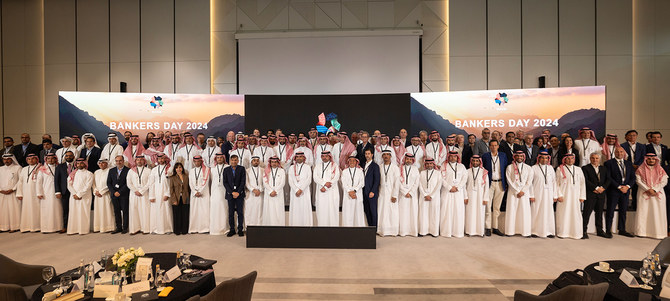
RIYADH: Saudi giga-project NEOM hosted 52 global, regional, and local financial institutions, showcasing ongoing progress across key projects and highlighting investment opportunities.
The meeting also reviewed the progress and latest developments in key NEOM undertakings, including The Line, Oxagon, Trojena, and Sindalah, scheduled to open later this year.
The event showcased the giga-project’s commitment to sustainable growth and development, underscoring its focus on environmental, social, and governance principles.
A notable aspect of the visit included a review of The Line, where dignitaries observed the rapid progress of phase one construction and gained deeper insights into the initiative’s design.
Nadhmi Al-Nasr, CEO of NEOM, said: “Since inception, we have been establishing strong partnerships to help drive this grand vision forward. NEOM’s vast scale and expertise offer strong and ongoing commercial opportunities for global organizations, including financial institutions.”
He added: “We were pleased to host guests from some of the world’s leading financial institutions in NEOM recently to discuss collaborative avenues. NEOM is open for business and we welcome all interested parties to be part of our continued success.”
The event drew representatives from 24 international banks and financial institutions, including those from Germany, Spain, and France, as well as the UK, the US, and China. Additionally, representatives from Japan and South Korea attended the event.
In addition, 13 regional banks from Qatar, Kuwait, and the UAE attended, alongside 15 financial institutions from Saudi Arabia.
In June 2023, NEOM launched the largest public-private partnership for accommodation, valued at over SR21 billion ($5.67 billion).
It also announced an SR37.5 billion joint venture with global logistics company Denmark’s DSV in October 2023 to provide logistics services for the giga-project.
These announcements, along with other NEOM partnerships, were well-received by attendees at Discover NEOM China, an event held in Beijing, Shanghai, and Hong Kong earlier this month. The event attracted more than 500 senior business and industry leaders.
SR10bn credit facility
NEOM also announced the signing of a credit facility worth SR10 billion to meet its short-term financing requirements.
The facility, structured on Murabaha principles, is aimed at supporting the developmental stages of flagship projects like The Line, Oxagon, Trojena, and Sindalah.
Al-Nasr emphasized the strategic alignment of these credit facilities with the Kingdom’s broader economic goals under Vision 2030.
In a press release, he highlighted the collaborative effort of leading Saudi financial institutions in supporting one of the world’s most ambitious projects by providing diverse financing solutions that bolster NEOM’s infrastructure initiatives.
The agreement has garnered significant attention, involving nine prominent banks such as the National Commercial Bank, Riyad Bank, and Saudi First Bank, alongside other key financial players.



